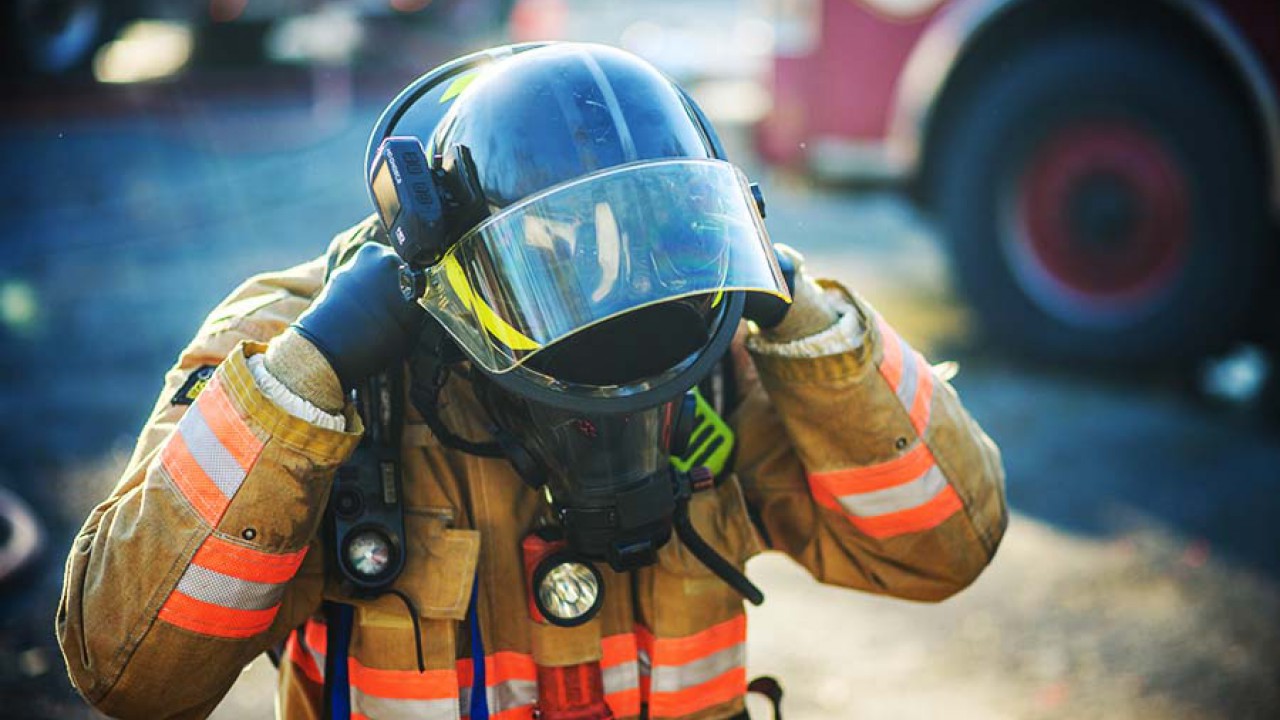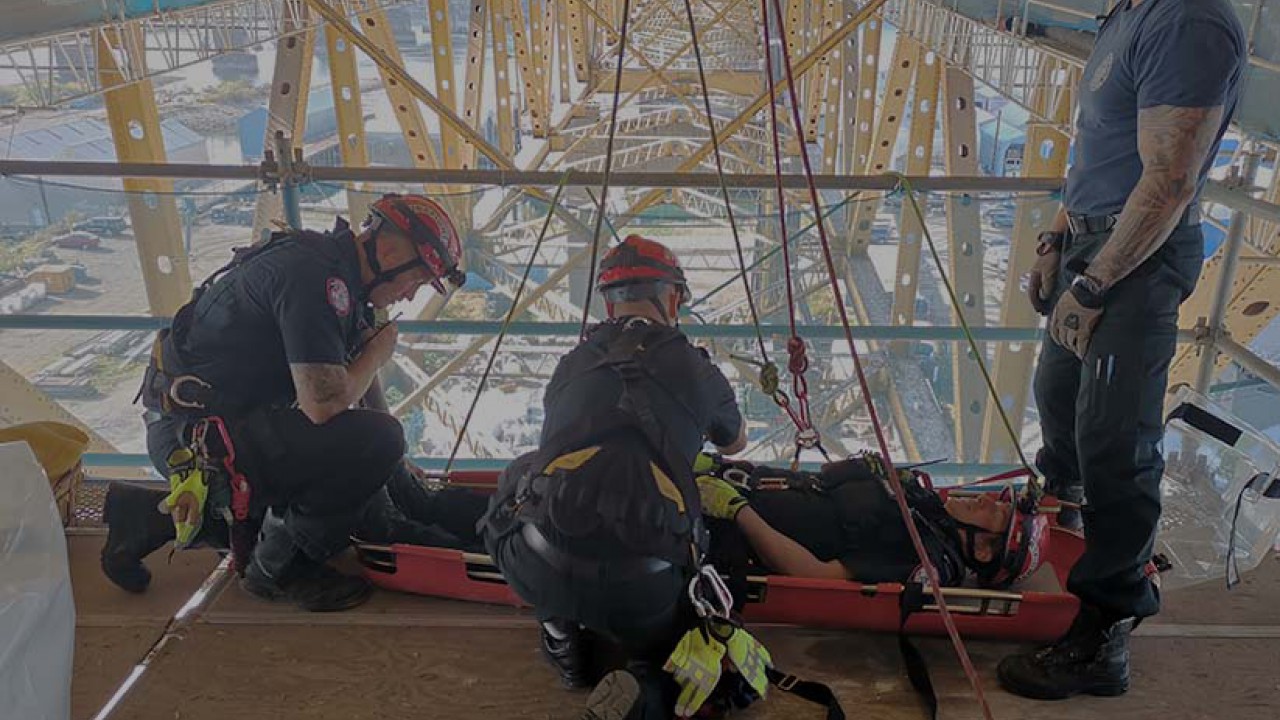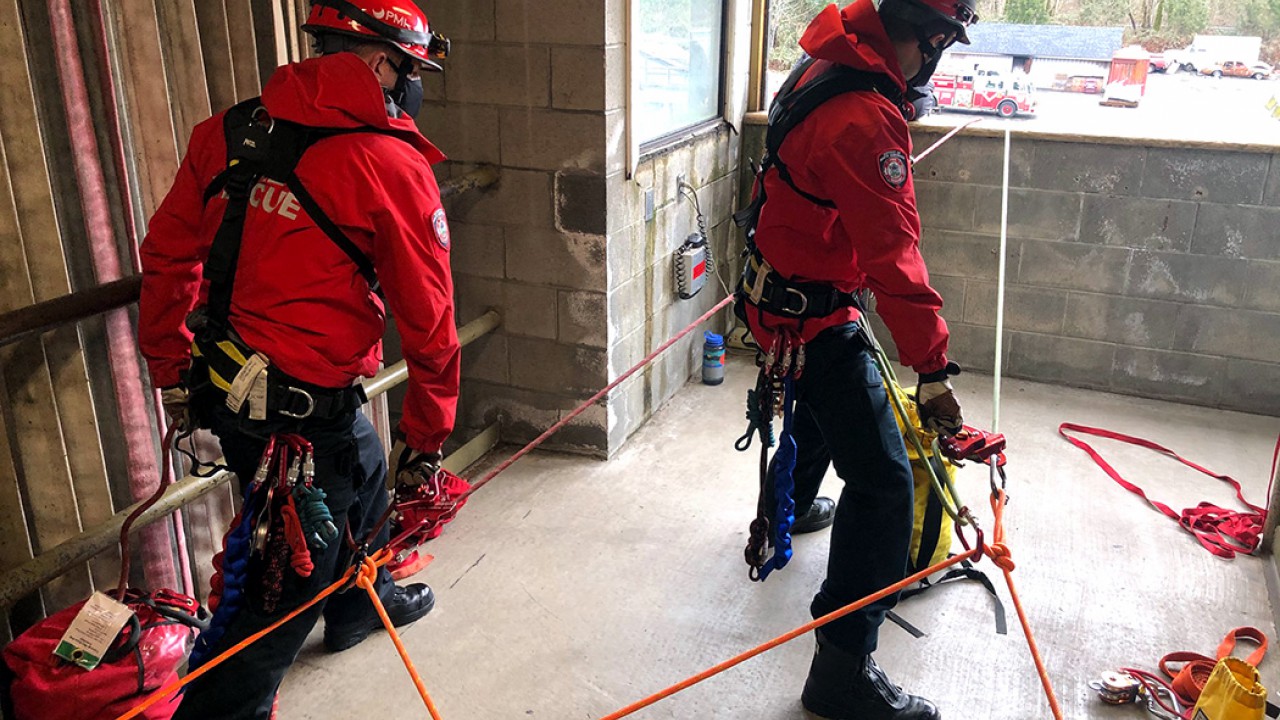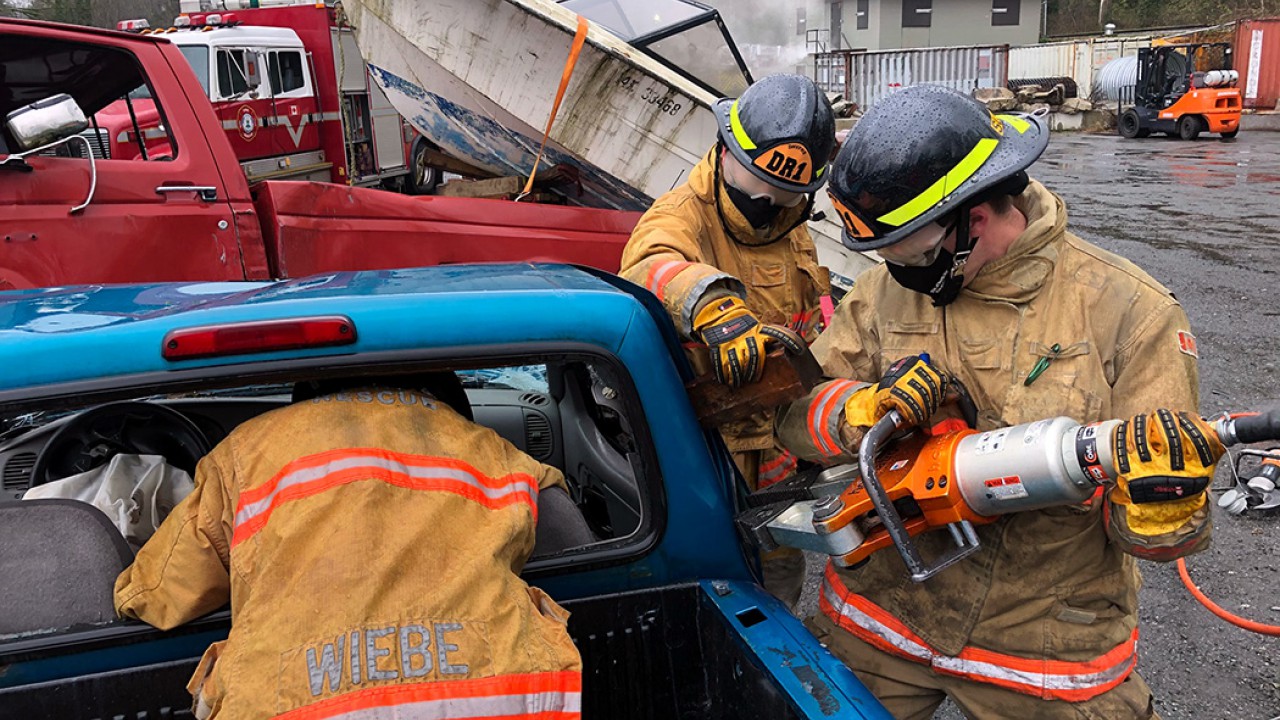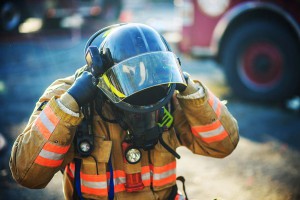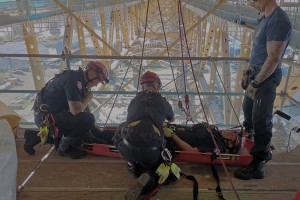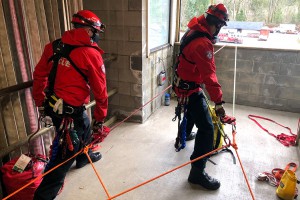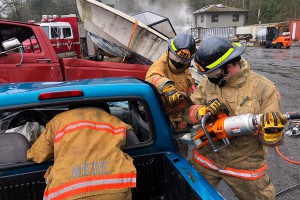Team building
The firefighters of DNVFRS are our greatest asset, and we’re proud of the work they do every day to keep our community safe.
We are continually developing and supporting our diverse and inclusive team of dedicated professionals. We strive to provide an environment of professionalism and well-being that aids our team in obtaining the skills and attributes that allow them to excel in their positions. We are building an exemplary workforce through our tri-municipal recruiting program, health and wellness, and training and certification programs.
Our team-building initiatives are reflected in the positive working relationships and partnerships that we maintain with our region’s many other professional and emergency service agencies. We continually support these relationships with regular initiatives, including interagency training and leadership programs.
Succession Planning
Through a collaborative process with the International Association of Fire Fighters (Local 1183), we continue to support and develop our Chief Officer Development Program (CODP) for our Company Officers. In 2021, we had nine (9) Captains who were trained and provided opportunities to fill temporary Assistant Fire Chief positions.
Developing tomorrow’s leaders today is the key to progressive organizational behaviour. The CODP provides an opportunity to prepare the next generation of leaders through professional development, mentoring, and practicum experience.
The DNVFRS is pleased with this program’s progress and is excited by the opportunity to further develop these members into the future leaders of our organization.
Training
To deliver the excellence of service our community deserves, we provide comprehensive ongoing training to our members. In 2021, we had a training budget of $415,820, which allowed us to provide 10,843 hours of specialized training to 126 firefighters.
Specialized Training (Overview)
Each year, we provide specialized training in multiple fire and rescue disciplines, including fire behaviour, swift-water rescue, high-angle rope rescue, vehicle extrication, fire ground operations, wildland firefighting, emergency vehicle operator and emergency medical responder.
Our professionally certified instructors deliver these sessions that typically take place either at our dedicated training centre or at various offsite training locations within our response area.
To expand our operational capacity and effectiveness when responding to emergencies, we have provided our firefighters with training in several new and expanding areas in 2021, including structural collapse operations and chainsaw safety.
Here is an overview of the specialized training we provided to our firefighters in 2021.
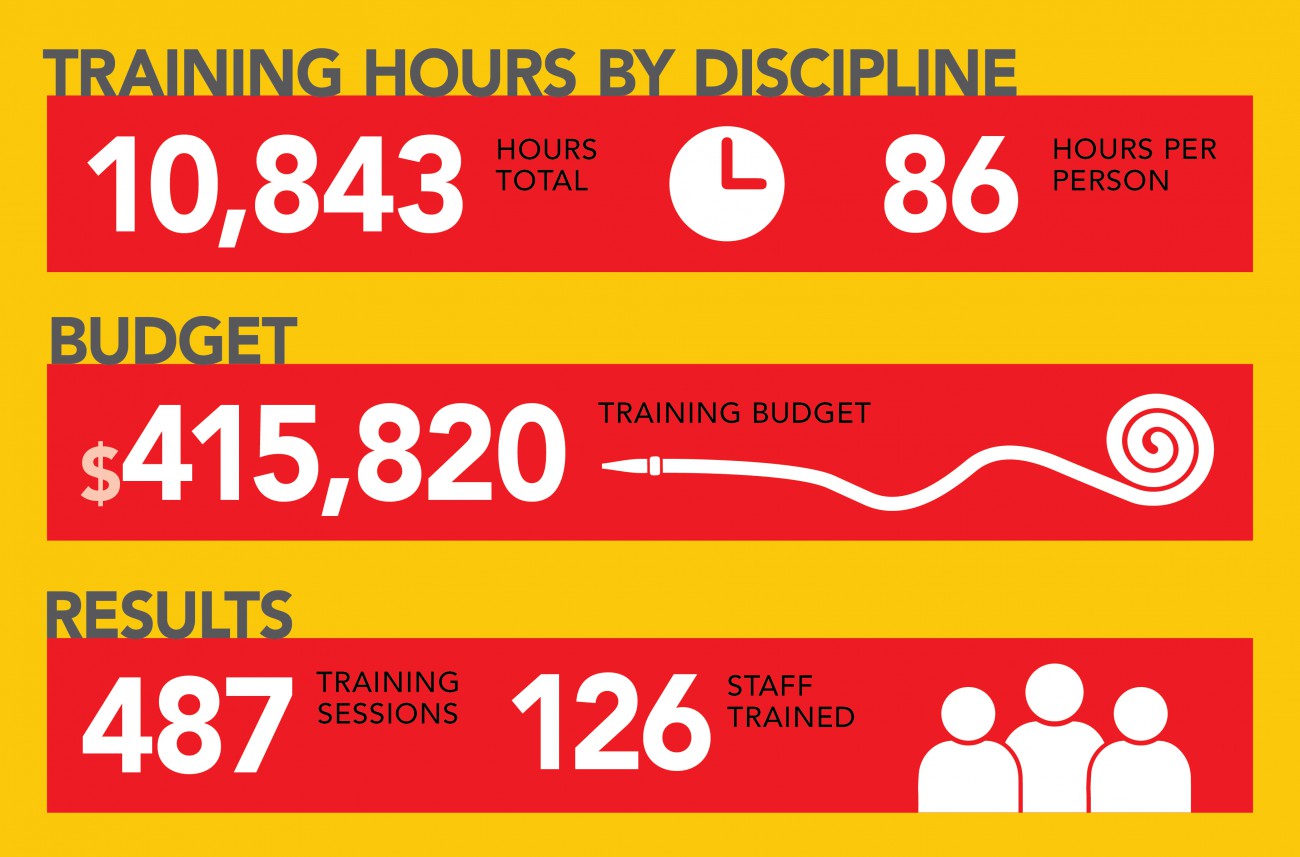
Specialized Training by Discipline (Top 5 Disciplines)
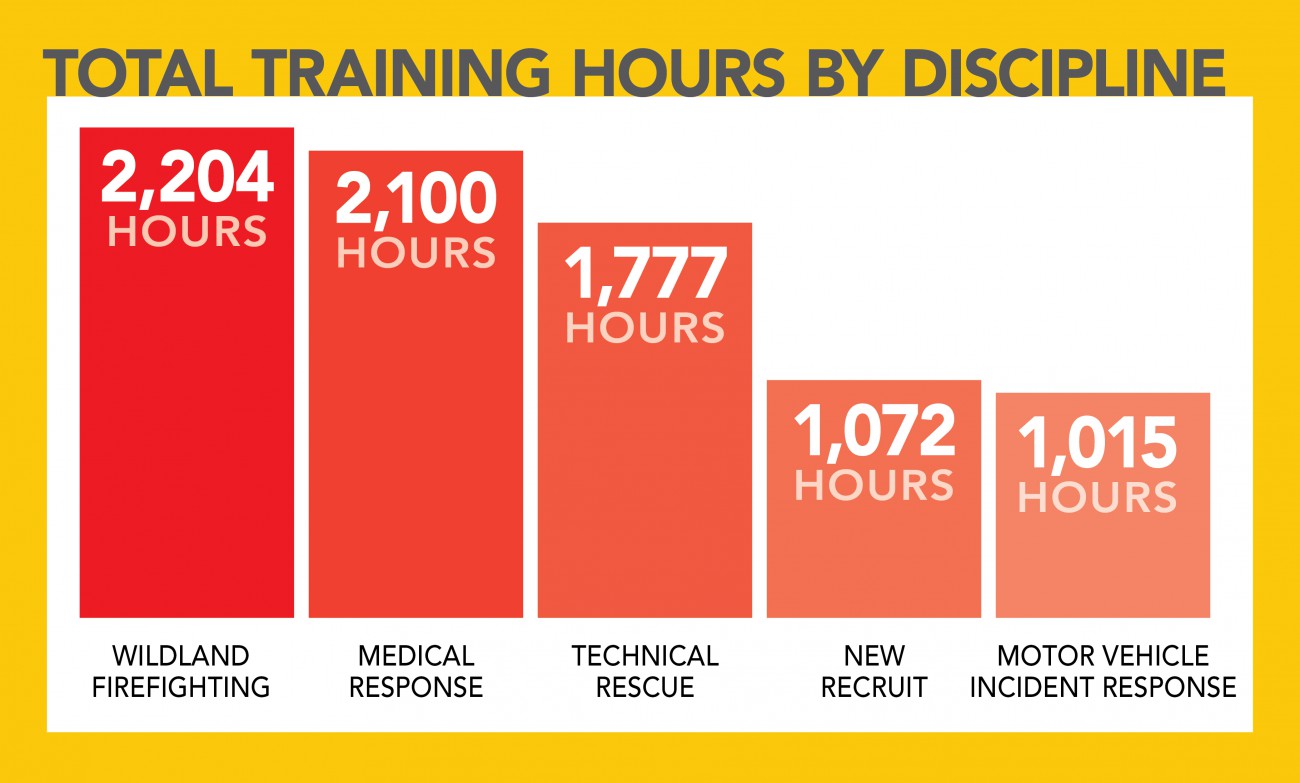
Foundational Skills Training (Overview)
In addition to specialized training, our firefighters receive a significant amount of regular, on-the-job training that supports and maintains their foundational skills. This training includes ladder operations, incident command training, traffic safety, radio communications, hose deployment, gas and electrical safety, and building construction.
This training ensures our firefighters maintain the required competency standards for full-service firefighters, as outlined by the BC Office of the Fire Commissioner in the BC Fire Service Structure Firefighters Competency and Training Playbook.
Here is an overview of the foundational skills training we provided in 2021.
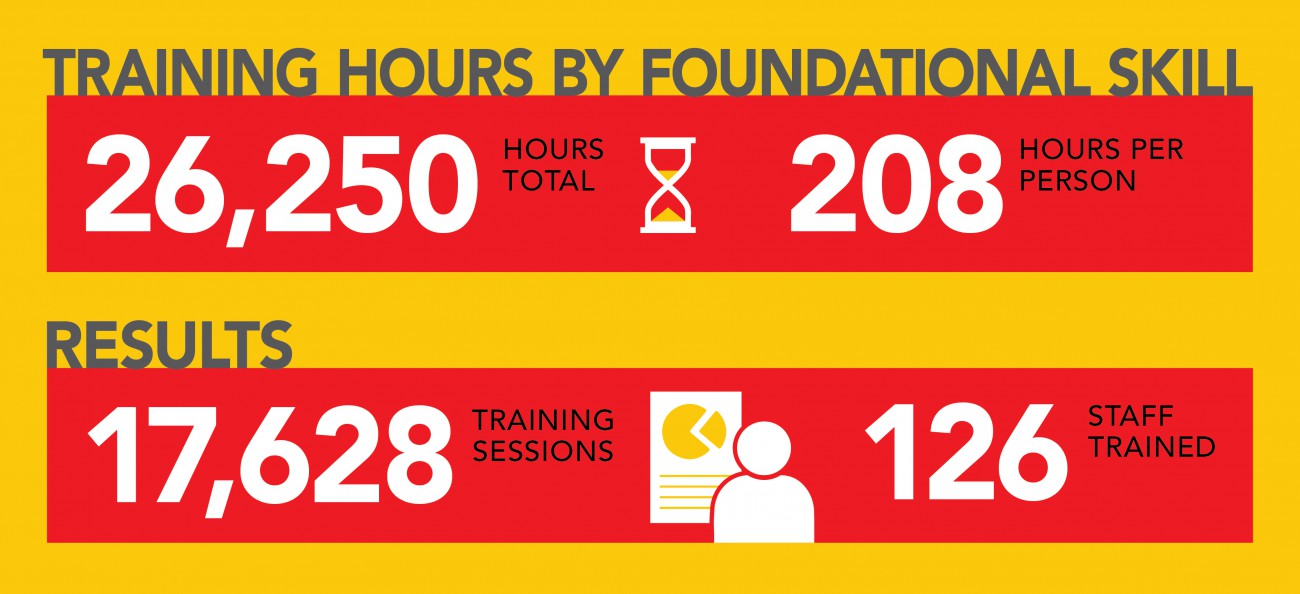
Foundational Skills Training by Subject (Top 5 Subjects)
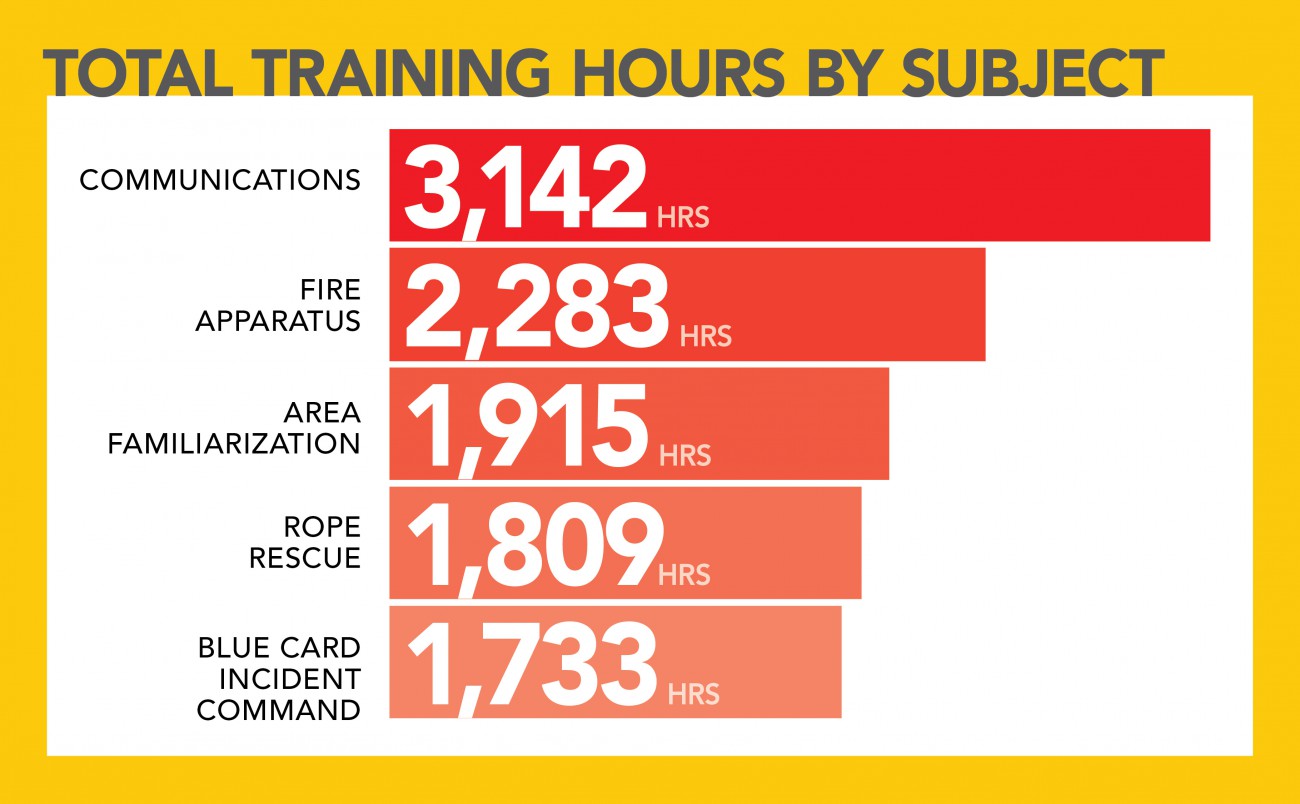
Interagency Training Highlights
We participate in training events with many of our regional emergency partners and regular training initiatives with our fellow North Shore fire departments. Some examples of this training include:
- Canada Task Force 1 (CANTF1) — Monthly training with Vancouver Fire and Rescue Services, Vancouver Police Department, British Columbia Ambulance Services, and North Shore fire departments
- Municipal and Metro Vancouver park staff training — Includes radio communications, fall restraint, swift-water awareness, wildland firefighting, and emergency medical first aid
- JIBC Shipboard Firefighting for Land Based Firefighters — Training involving all three North Shore fire departments, Seaspan Vancouver Ship Yards, Vancouver Fire Rescue Services, North Vancouver RCMP, Vancouver Police and RCM Search and Rescue
Justice Institute of BC (JIBC) Partnership
The JIBC is a provincially recognized and industry leader of emergency service educational programs and training.
In 2020, we initiated a fire training partnership agreement with the JIBC that recognizes DNVFRS as an authorized provider of accredited training courses for the JIBC. This partnership will enable us to work together with the JIBC to enhance and improve the quality of fire training programs available to our region’s fire service agencies.
New Maplewood Fire & Rescue Training Facility
In early 2018, we began planning for the new Maplewood Fire and Rescue Centre to consolidate our current Fire Station #2 (Lynnmour) and Training Center on St. Denis Avenue and centrally locate management and administrative staff from Fire Station #1 in Lynn Valley.
Combining a fire station, training centre, and administrative functions into one new facility will improve fire response times, create operational efficiencies, and optimize the capital investment over the long term.
The sustainable, energy-efficient 45,000-sq.ft-facility will be made to post-disaster standards in order to maintain services in emergencies such as power outages and earthquakes. The new building is anticipated to have a 71% reduction in energy use and a 92% reduction in greenhouse gas (GHG) emissions compared to the existing buildings being replaced.
The construction of Maplewood Fire and Rescue Centre began in February 2022 and will take approximately 18 to 24 months. The anticipated completion date is fall 2023.
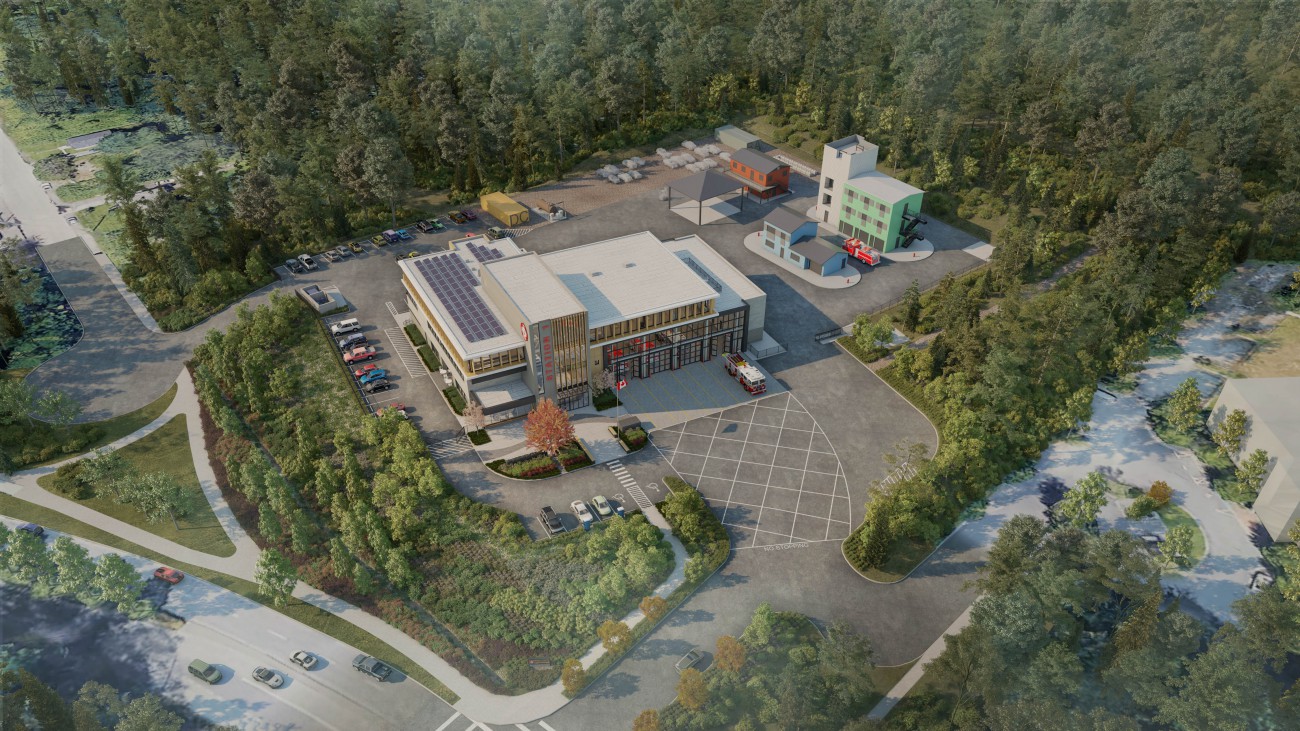
See the latest project updates
Mental Health
Stress management and mental health care are at the forefront of our efforts to ensure staff are happy and healthy in their service to our community.
Our firefighters are trained to build psychological strength by taking part in the Resilient Minds program developed by the Canadian Mental Health Association, which teaches our members how to mitigate the impact of injuries related to occupational stress through early recognition and intervention.
Members receive the tools they need to improve their psychological health and enhance their quality of life. The program also provides our members with peer support when exposed to distressing situations such as violence, trauma, or death through post-incident defusing and debriefing. Looking ahead, in 2022, we will be developing a comprehensive 5-Year Well-Being Plan to improve and support the mental, physical and behavioural health of all personnel.
Diversity and Inclusion
Women and visible minorities represent a small percentage of the total DNVFRS staff. We continue to reach out to the community and encourage everyone to consider the benefits of a career in the fire service. Recently, we developed a recruitment and outreach program with a goal to attract potential future firefighters from our local high school and post-secondary student populations.
Here are select events we held or attended in 2021:
- Camp Ignite — An annual camp for young women between 16-18 who want to learn firefighting skills and techniques, which we were honored to host at our training centre
- JIBC Informational Workshop — We participated in workshops this year with our Training Division and students currently enrolled in the Justice Institute of BC’s Career firefighter technologies program
- School visits — North Vancouver School District
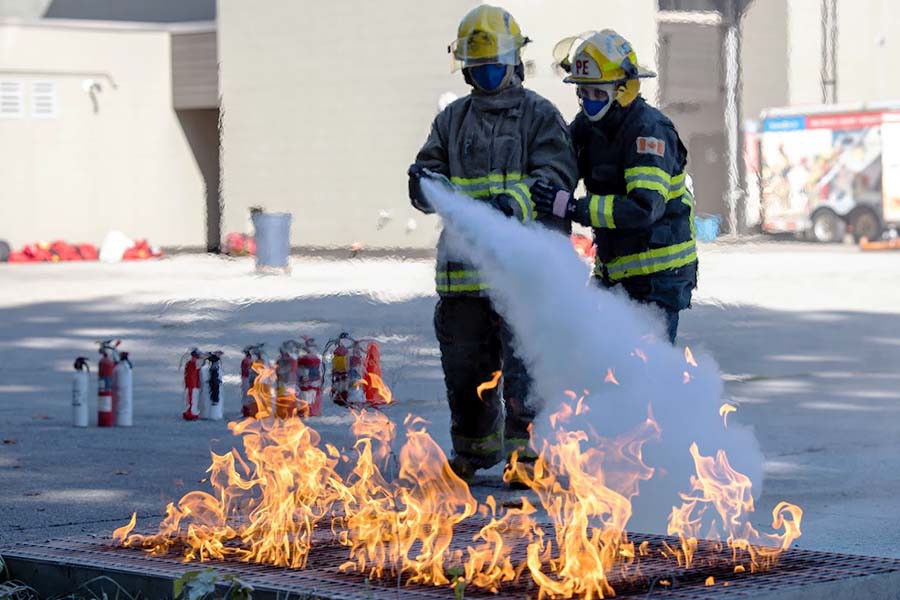
Work Experience
We enjoy giving local young people an inside look at the challenges and rewards of a firefighting career.
In 2022, we plan to continue to offer a “behind the scenes” look at a day in the life of DNVFRS through the following programs:
- Bring Our Kids to Work Day — Students spend a day participating in firefighting demonstrations and activities
- Work experience program — Local high school students get the opportunity to experience a day in the life of a fire service member
Unfortunately, we had to cancel some of these programs in 2021 due to COVID-19. We value these programs and look forward to offering and expanding on these programs once again in 2022.



